Discover the best enterprise hard drives for your business. Explore the top enterprise hard drives for performance, reliability, and scalability.


Enterprise hard drives provide the necessary reliability, performance, and capacity for mission-critical, continuously demanding applications in an organization’s data storage infrastructure. In contrast to the general purpose hard disk drives employed in a wide array of use cases and environments, enterprise drives are designed to meet the high-capacity, high-speed, high-reliable needs of modern business data storage and access.
We evaluated 10 of the most widely used enterprise hard disk drives (HDDs) for use in a range of environments—data center, desktop, hybrid, cloud, and network attached storage (NAS)—to see how they compared. We scored them on price, core and enterprise features, vendor profiles, and customer support—here are our choices fo the top enterprise hard drives of 2023:
The top enterprise hard drives in this list have been designed and battle-tested for enterprise-grade environments and use cases. These scenarios—data centers, NAS appliances, cloud and hybrid servers—typically require extended levels of reliability, performance, and resilience under heavy continuous use.
| Core Features | Enterprise Features | Environments | Vendor Profile | Pricing | |
|---|---|---|---|---|---|
| Seagate Exos | ☆☆☆☆½ | ☆☆☆☆☆ | ☆☆☆☆ | ☆☆☆☆☆ | $200-400 |
| Ironwolf Pro | ☆☆☆½ | ☆☆☆½ | ☆☆☆☆ | ☆☆☆☆☆ | $150-700 |
| WD Gold Enterprise | ☆☆☆☆½ | ☆☆☆☆½ | ☆☆☆☆☆ | ☆☆☆☆☆ | $84.99 – 549.99 |
| Toshiba MG Series | ☆☆☆☆½ | ☆☆☆☆½ | ☆☆☆½ | ☆☆☆☆☆ | $250 – 400 |
| Seagate Firecuda | ☆☆☆☆☆ | ☆☆☆☆☆ | ☆☆☆☆☆ | ☆☆☆☆☆ | $300 |
| WD Black | ☆☆☆ | ☆☆☆☆ | ☆☆☆½ | ☆☆☆☆☆ | $450 |
| WD Red Pro | ☆☆☆☆ | ☆☆☆ | ☆☆☆☆☆ | ☆☆☆☆☆ | $700 |
| Toshiba N300 NAS | ☆☆☆☆ | ☆☆☆☆½ | ☆☆☆ | ☆☆☆☆☆ | $400 |
| Seagate Skyhawk AI | ☆☆☆ | ☆☆☆½ | ☆☆☆½ | ☆☆☆☆☆ | $650 |
| WD Purple | ☆☆☆☆☆ | ☆☆☆☆ | ☆☆☆ | ☆☆☆☆☆ | $214 |

Best for Heavy Workloads
Overall Score: 4.43
Core Features: 4.5
Enterprise Features: 5
Environments: 4
Vendor Profile: 5
The Seagate EXOS series is designed for server environments and heavy workloads (similar to the Seagate Ironwolf series). EXOS drives are available via a serial AT attachment (SATA) or serial attached SCSI (SAS) interface, and have been rated to perform at 2.5 million hours of mean time between failure (MTBF).
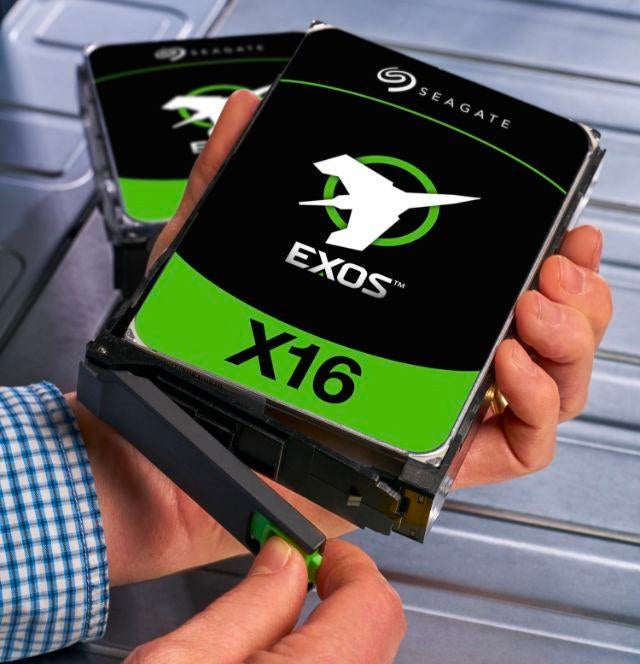

Best for Data Centers
Overall Score: 3.93
Core Features: 3.5
Enterprise Features: 3. 5
Environments: 4
Vendor Profile: 5
Like its EXOS siblings, the IronWolf Pro is an enterprise-class hard drive designed for data centers, servers, high capacity SATA/SAS/non-volatile memory express (NVMe) applications, and other scenarios that require high levels of performance and reliability.
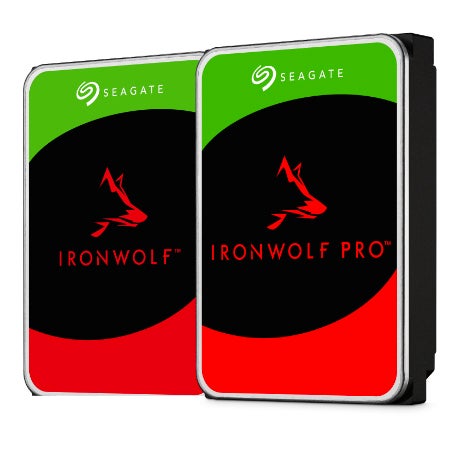

Best for Size Options
Overall Score: 4.78
Core Features: 4.5
Enterprise Features: 4.5
Environments: 5
Vendor Profile: 5
WD’s Gold is the leading hard drive manufacturer’s top-of-the-line HDD series. It boats the highest storage capacities and sustained transfer rates, as well as enterprise features like ArmorCache, its non-volatile cache solution that improves performance and reduces the risk of data loss typical in traditional DRAM based caching.
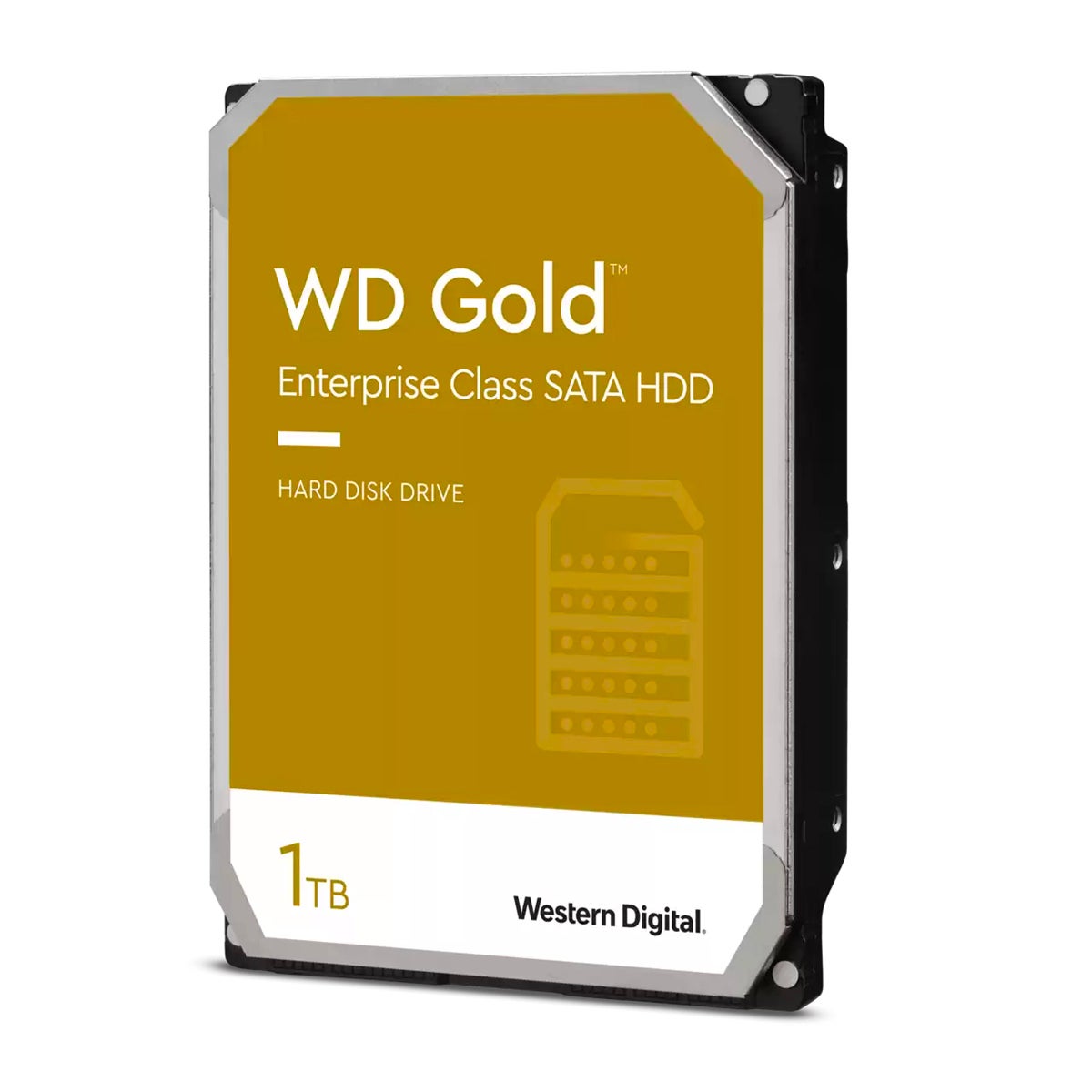
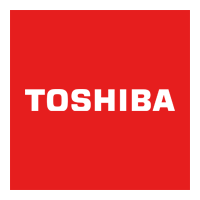
Best for Mixed Use Workloads
Overall Score: 4.58
Core Features: 4.5
Enterprise Features: 4.5
Environments: 3.5
Vendor Profile: 5
Toshiba’s MG Series hard drives provide enterprise data management and storage-utilization features, with data center server and storage infrastructure capacity options that range from 1 TB to 10 TB for supporting 24/7 mixed use workloads.
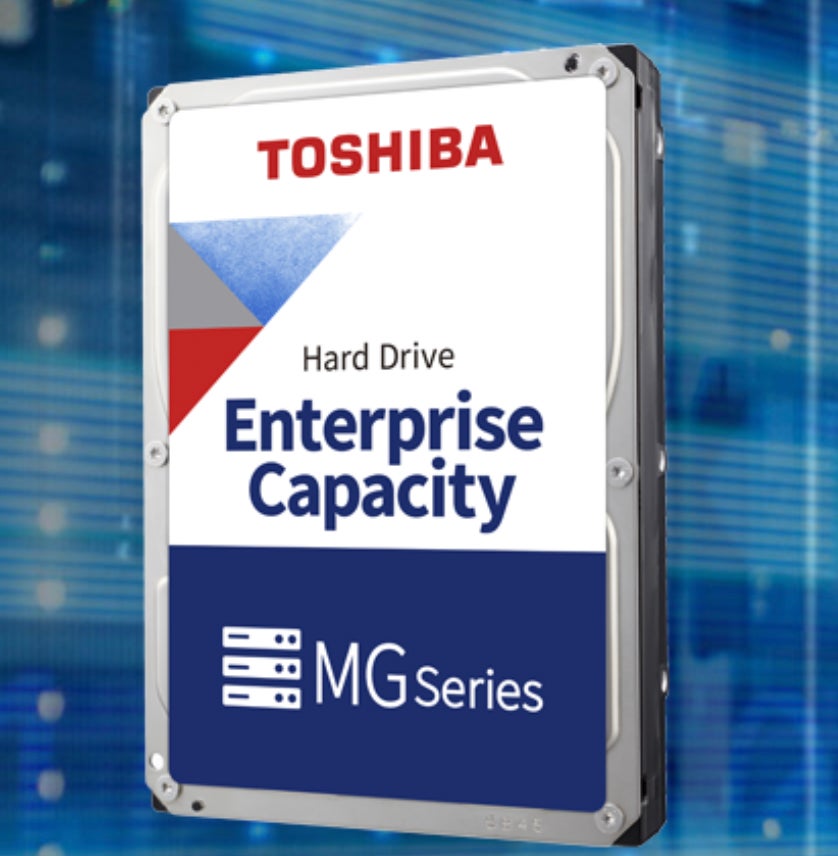

Best for Vault Use Cases
Overall Score: 4.95
Core Features: 5
Enterprise Features: 5
Environments: 5
Vendor Profile: 5
Although the Seagate FireCuda is primarily geared for gaming and intensive audio visual (A/V) applications, the industrial- grade hard drive is also a competent choice for enterprise storage use cases and data center applications.
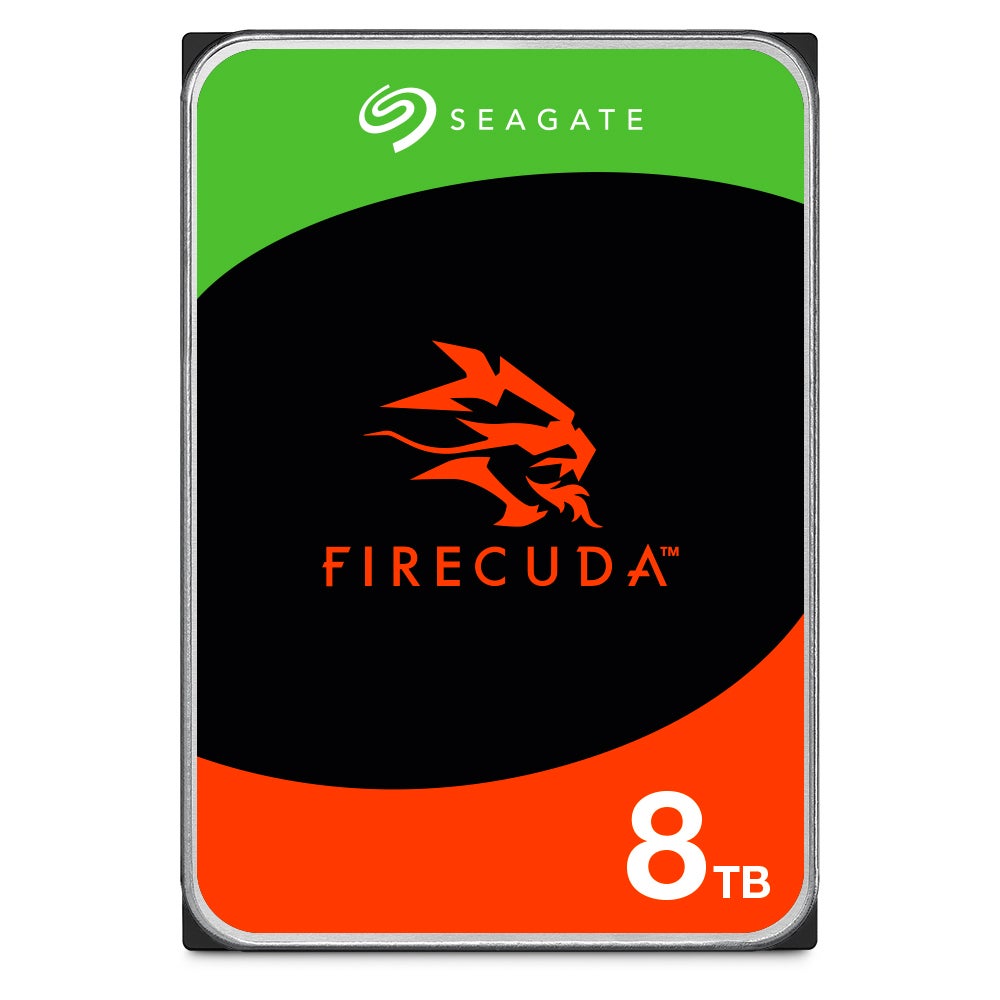

Best for Enterprise Desktops
Overall Score: 4.05
Core Features: 3
Enterprise Features: 4
Environments: 3.5
Vendor Profile: 5
WD’s Black is another popular hard drive choice for enterprise IT professionals. With 7,200 RPM spindle speeds at 4 TB and up, the drive is a capable contender in the high-end hard drive space.
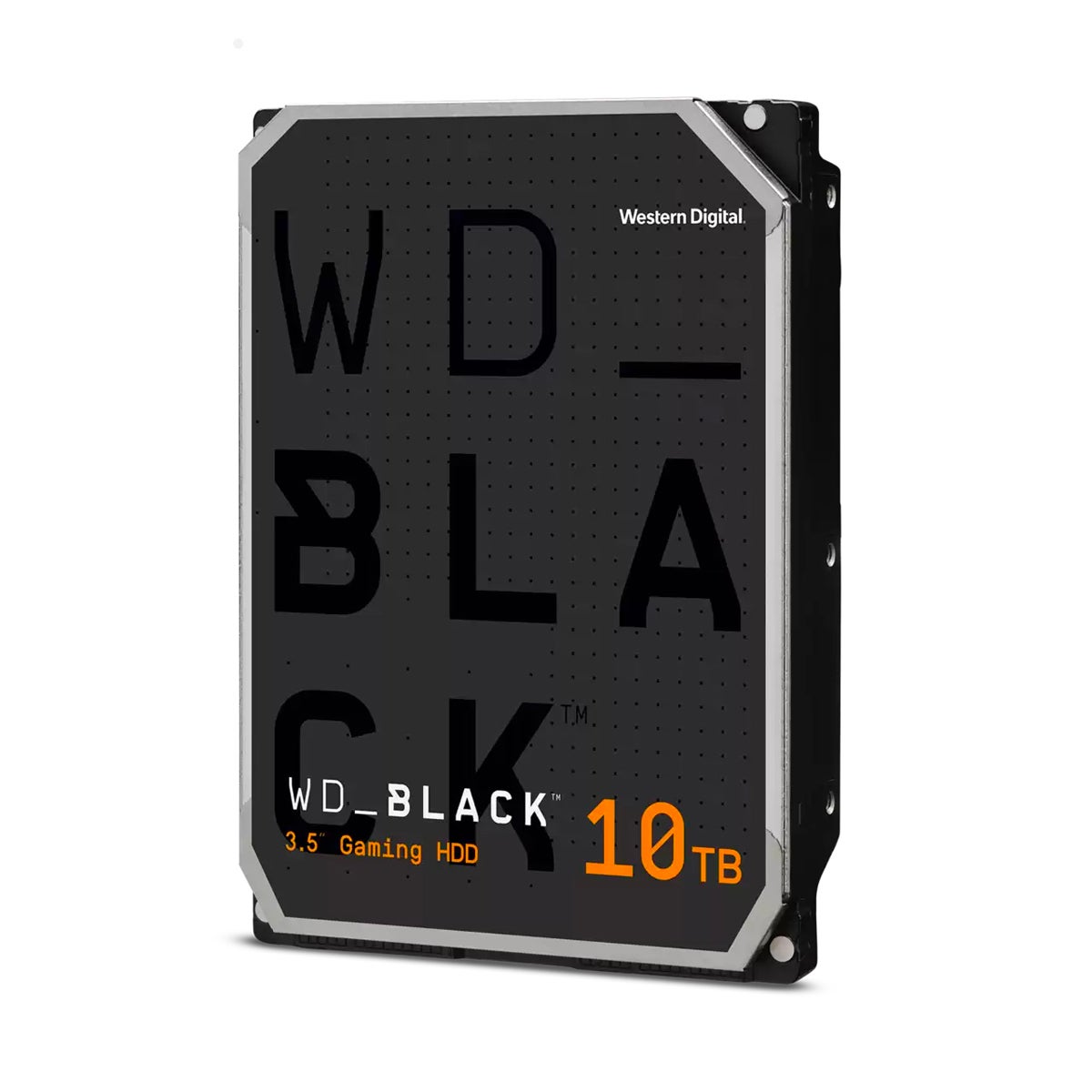

Best for Enterprise NAS
Overall Score: 4.50
Core Features: 4
Enterprise Features: 3
Environments: 5
Vendor Profile: 5
Also similar to the Seagate IronWolf Pro, the Western Digital Red Pro is a NAS hard drive line that offers strong performance in random workloads due to its 7,200 RPM spindle speed. The drive also comes with 512MB of DRAM cache for the 14TB and larger models.
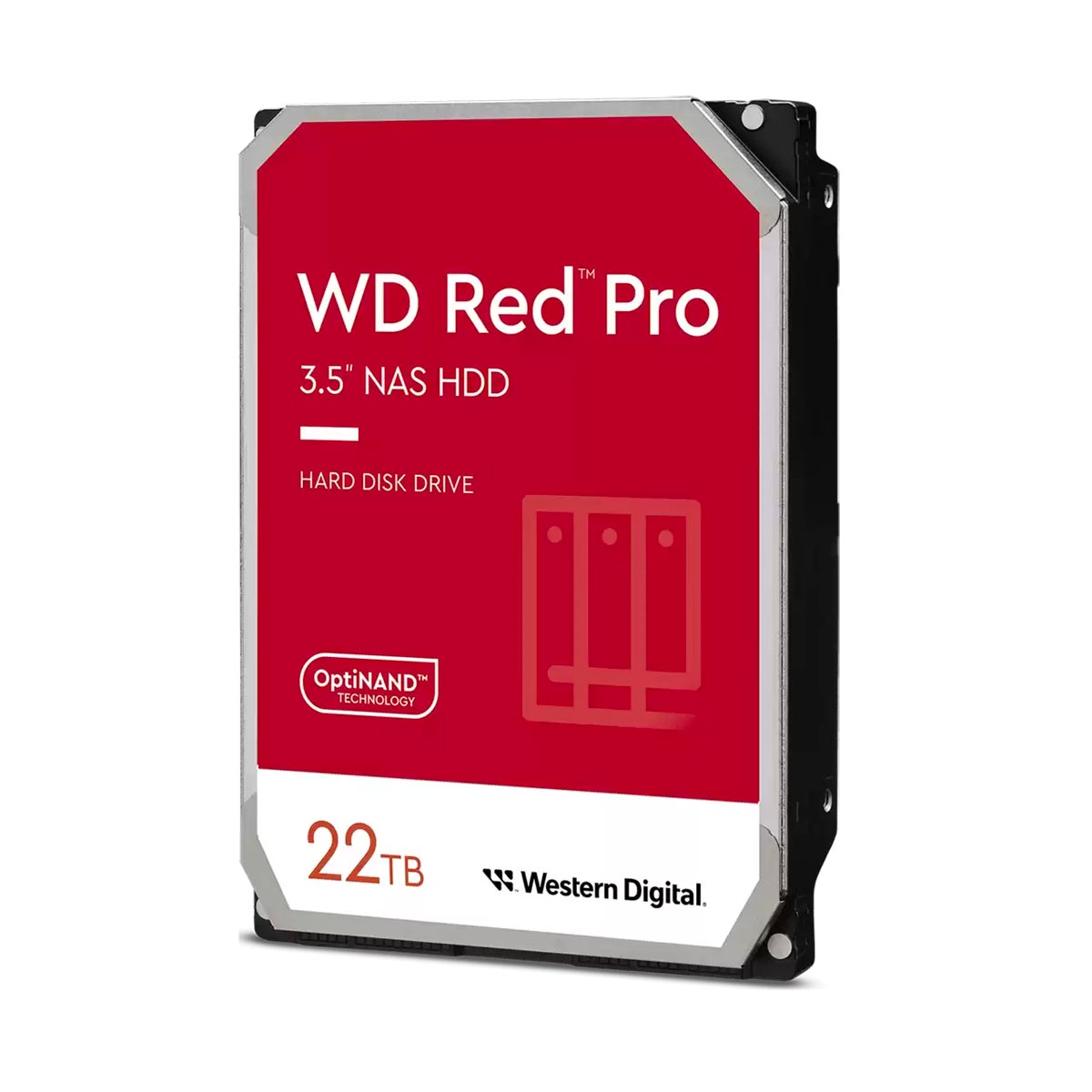

Best for Enterprise NAS
Overall Score: 4.25
Core Features: 4
Enterprise Features: 4.5
Environments: 3
Vendor Profile: 5
Toshiba’s 3.5-inch N300 NAS hard drive is a popular option for use in NAS and other high-performance storage systems. The drive is available in capacities up to 18 TB and is renowned for its enterprise reliability, endurance, and performance—at a price point attainable for personal use, home offices, and smaller organizations.
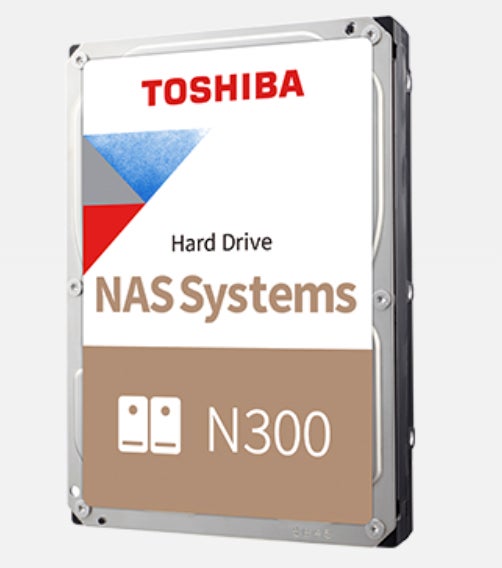

Best for NVRs
Overall Score: 3.95
Core Features: 3
Enterprise Features: 3.5
Environments: 3.5
Vendor Profile: 5
Seagate’s Skyhawk surveillance hard drives are designed for enterprises looking for storage options for use in video analytics and imaging applications. Designed with advanced features, Skyhawk drives are ideal for artificial intelligence network video recorders (AI NVRs), servers, and appliances with AI analytics and deep learning capabilities.
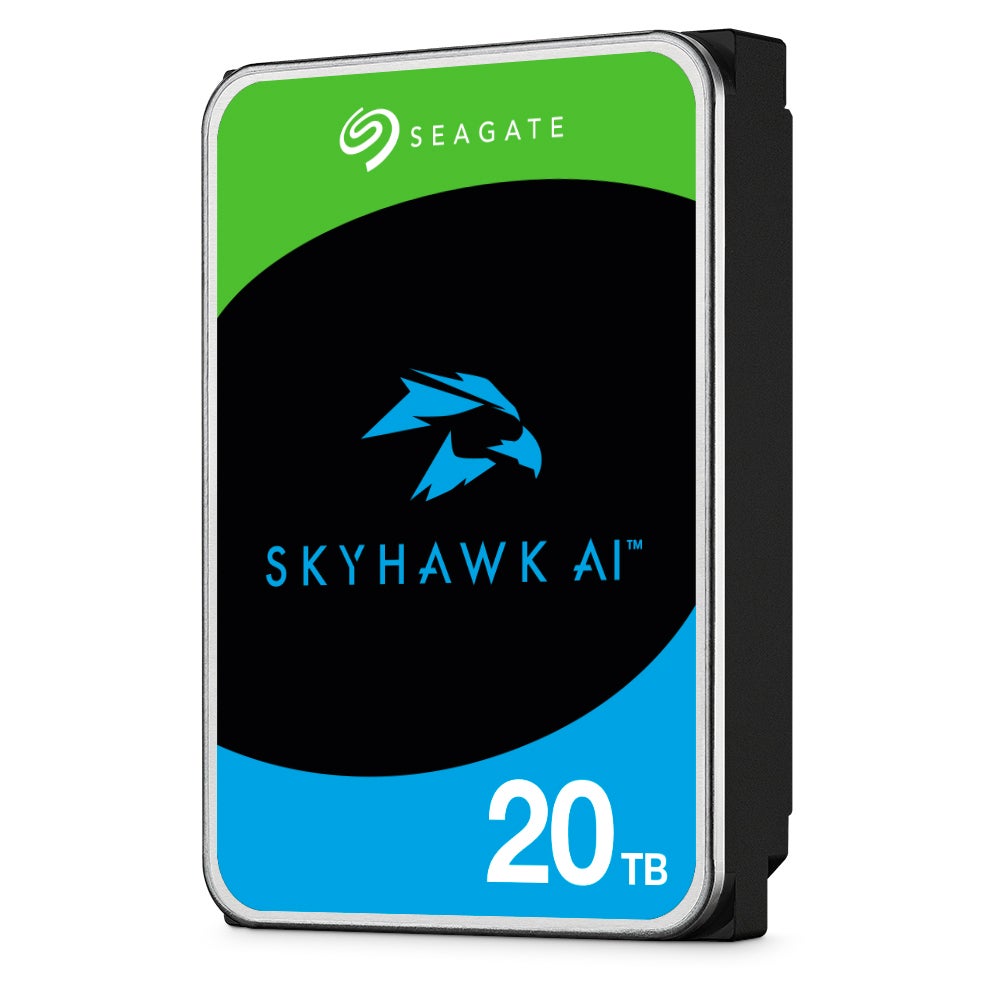

Best for Other Surveillance
Overall Score: 4.55
Core Features: 5
Enterprise Features: 4
Environments: 3
Vendor Profile: 5
WD Purple series drives are specially designed for enterprise-grade 24×7 video surveillance recording and security system use cases. They provide surveillance-class storage tested for compatibility with myriad security systems.
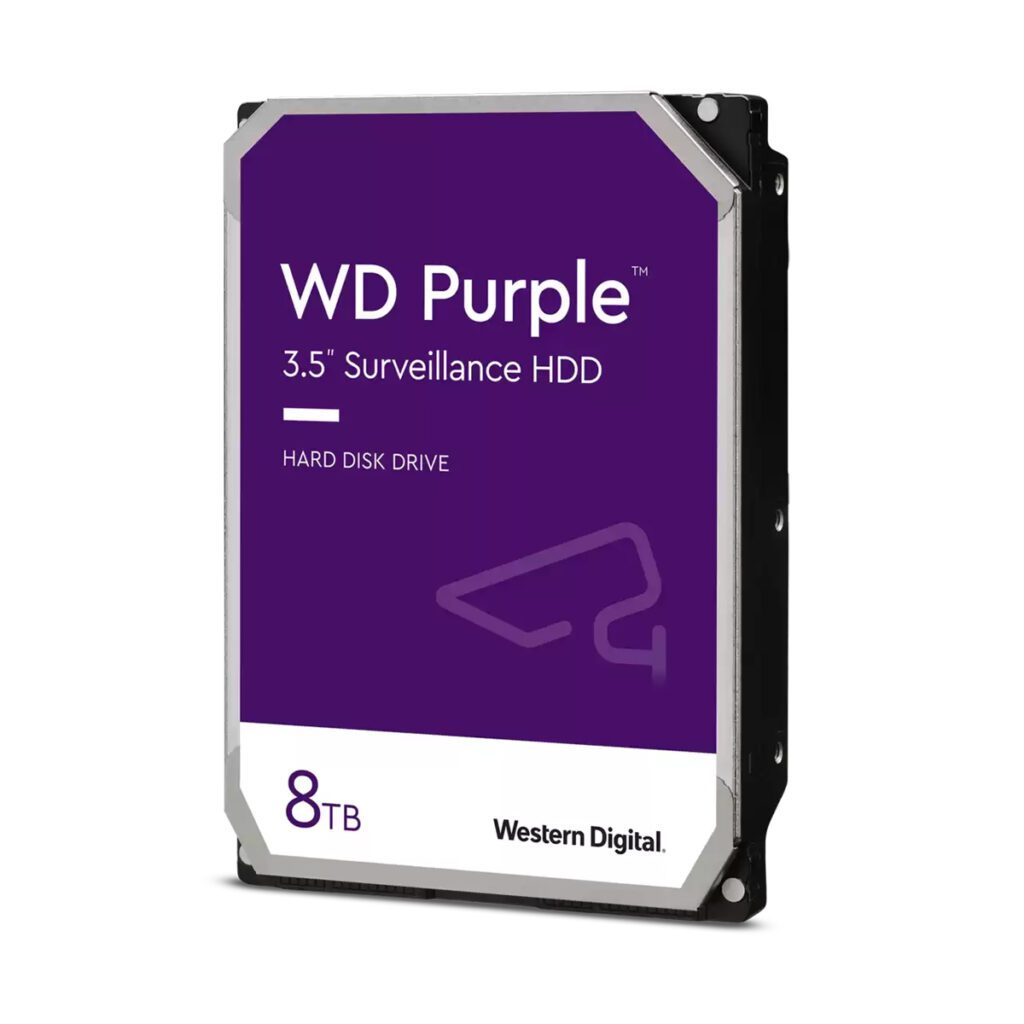
Enterprises typically prioritize features that help future-proof storage infrastructures for accommodating increasing demands of data-intensive applications while ensuring interoperability with cloud services and hybrid or fully cloud-based solutions.
More than a few of the hard drives on this list are designed for NAS or video surveillance usage. As a result, features that enable collective monitoring and management are also key enterprise considerations.
All the drives in this list are built with a focus on reliability and durability to withstand the demanding 24/7 operation typical in business environments. They often have higher mean time between failure (MTBF) rates and are tested for extended reliability.
Enterprise drives are optimized for performance, with features such as faster data transfer rates, larger cache sizes, and improved seek times. These drives are designed to handle high input/output (I/O) operations and maintain consistent performance under heavy workloads.
Enterprise drives implement advanced error recovery mechanisms and error correction codes to ensure data integrity. They often include features like time-limited error recovery (TLER) to prevent the drive from spending too much time on error recovery, which is important in redundant array of independent disk (RAID) configurations.
Many enterprise hard drives are designed with power efficiency in mind. This is essential for data centers and enterprise environments that deploy large numbers of drives. Energy efficient drives can help reduce overall power consumption, cooling requirements, and operational costs.
Selecting the right enterprise hard drive requires careful consideration of capacity, performance, reliability, security, scalability, power efficiency, and support. You should conduct a thorough assessment of your specific needs—for example, if your enterprise is looking for a hard drive for a video surveillance use case, then the Skyhawk and WD Purple series may be a good fit.
In evaluating the enterprise hard drives on this list, we evaluated a range of factors across pricing, core/enterprise features, support levels and options, drive installation and operational environments, and the manufacturer’s reputation.
Pricing factors include the drive’s base price, its breadth of price points/options, cost of support/customer care, add-on/option pricing, and any upgrade/discount options.
Core features include capacity options, speeds, MTBF, RPMs and data transfer rates, and enhanced vibration resistance.
Enterprise features include advanced error recovery, extended warranty options, Additional services and support, extended hardware security mechanisms, and regular feature enhancements/firmware updates.
Crucial support options include live chat, phone, email support, as well as ample documentation/knowledge base resources, as well as optional premium support channels.
Operational environments include inside the corporate data center, hybrid environments, desktop/server installs, and cloud NAS/appliances.
Vendor profile measures include breadth of product line, vendor business type, customer base, length of time in business, and reputation (e.g., data breaches, privacy incidents, acquisitions).
Enterprise hard drives are specialized storage devices designed for use in business environments, providing high-capacity, reliability, and performance to meet the demanding storage needs of large organizations.
Look at features such as enhanced durability, 24/7 operation, and advanced error recovery mechanisms, ensuring data integrity and minimizing the risk of data loss.
Enterprise hard drives often come with higher rotational speeds, larger cache sizes, and improved RAID support compared to consumer-grade drives, enabling them to handle the heavy workloads and continuous access typical in business settings. Additionally, they often undergo more rigorous testing and validation processes to ensure a longer lifespan and consistent performance.
Enterprise hard drives employ measures like hardware-based encryption, where the drive itself encrypts data using encryption algorithms. This ensures that even if the drive is removed or accessed without proper authorization, the stored data remains unreadable without the correct decryption key.
In short, enterprise drives should offer extended capacity, performance, reliability, security, scalability, power efficiency, and support options, as well as advanced features for supporting use cases like surveillance, cloud storage, and artificial intelligence and machine learning (AI/ML) data workloads. Although the hard drive space space is dominated by a relatively small set of players, each vendor typically offers a vast line of drives targeting a wide array of enterprise environments and use cases.
Read 5 Types of Enterprise Data Storage to learn more about the different ways businesses store and manage the massive volumes of data they deal with on a regular basis.

Enterprise Storage Forum offers practical information on data storage and protection from several different perspectives: hardware, software, on-premises services and cloud services. It also includes storage security and deep looks into various storage technologies, including object storage and modern parallel file systems. ESF is an ideal website for enterprise storage admins, CTOs and storage architects to reference in order to stay informed about the latest products, services and trends in the storage industry.
Property of TechnologyAdvice. © 2026 TechnologyAdvice. All Rights Reserved
Advertiser Disclosure: Some of the products that appear on this site are from companies from which TechnologyAdvice receives compensation. This compensation may impact how and where products appear on this site including, for example, the order in which they appear. TechnologyAdvice does not include all companies or all types of products available in the marketplace.